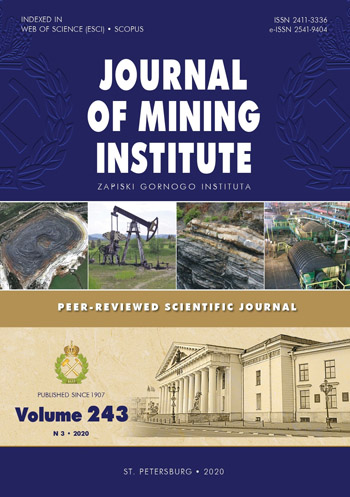Geochemical approach in assessing the technogenic impact on soils
- Ph.D., Dr.Sci. Professor Irkutsk National Research Technical University
Abstract
The soil assessment was carried out in the technogenically-affected area of Irkutsk Oblast with the geochemical approach as a key geoecological method using physical and chemical techniques of analysis and ecodiagnostics. Diagnostic signs of the disturbed natural properties of the soil were revealed up to a depth of 40 cm in the profile based on macro- and micromorphometric parameters. The content of heavy metals (HM) – Pb, Zn, Hg, and Cu with an excess of standards was determined, and empirical HM – pH correlations were obtained by statistical clustering of the data array. The contributions of additional factors affecting the chemical element distribution in the soil layer were investigated. Significant soil contamination with sulfates and the possibility of implementing the ion-exchange of HM andfor element immobilization were revealed. It was shown that reactions with sulfates and the influence of pH, HM exchange processes involving mobile K and P can determine the nature of the described chemical element distribution in the multi-factor-contaminated technogenic soil. However, the effectiveness of such types of interaction is different for each metal and also depends on the quantitative ratio of substances and soil characteristics, even under a minor change in pH. Two-parameter correlations of HM distribution in sulfate-contaminated soils confirmed the different degrees of involvement of chemical elements in these types of interactions. The results obtained and the identified factors are of applied significance and can be used as the basis for geoecological differentiation of the contaminated soil, as well as for determining local geochemical fields in the technogenesis zone. Areas of advanced research are related to three-dimensional modeling for a more complete study of the cause-and-effect relationships of geochemical parameters.
